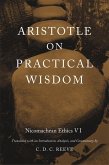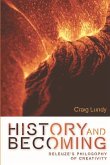ENG The term "Enlightenment" is frequently discussed - and abused - in public and scholarly discourses. At times, it is considered the most significant achievement of modernity. Alternatively, it is argued that the Enlightenment has failed, because it deified reason, was not enlightened itself, or has led to totalitarianism and genocide. This book examines distinct and legitimate conceptions of the Enlightenment: as an intercultural phenomenon of processes of rationalization; as a historical epoch concept; as "enlightenment of the intellect"; as enlightenment through science; as an emancipatory project; as enlightenment of reason. Individual chapters investigate epistemological approaches; the enlarged way of thinking, humor, and cynicism; the moral-philosophical foundations of the rule of law, tolerance, and human rights; the models of enlightened religiosity. RUS Термином 'Просвещение' часто злоупотребляют в общественных и научных дискуссиях. Иногда этот концепт считают самым значительным достижением современности. В других же случаях утверждают, что Просвещение потерпело неудачу, поскольку оно, обожествляя разум, само не было просвещенным, что в перспективе привело к тоталитаризму и геноцидам. В книге рассматриваются различные концепции Просвещение как межкультурный феномен процессов рационализации; Просвещение как понятие исторической эпохи; Просвещение как 'просвещение интеллекта'; Просвещение в его научном срезе; Просвещение как эмансипаторный проект; Просвещение как 'просвещение разума'. Автор исследует эпистемологические подходы к изучению Просвещения, роль юмора и цинизма, морально-философские основания правового государства, толерантности и прав человека, а также модели просвещенной религиозности.







